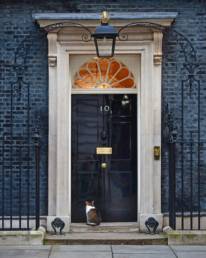Many people feel awkward talking about their finances with their nearest and dearest, let alone a stranger. According to a Money & Pension Service survey, 55% of us say we feel uncomfortable opening up and talking about money with anyone.
However, if you’re seeking advice from a financial planner, you’ll need to be prepared for some probing questions. By providing open and honest answers, your financial planner will have the information they need to design a financial plan that helps you achieve your life goals.
By taking a holistic view your financial planner will identify opportunities that you may otherwise be unaware of
The reason your financial planner asks so many questions is that they need to understand your current financial position, existing commitments, risk profile, and goals for the short, medium and long term.
By taking a holistic view of your situation, they can spot any potential problems and put financial strategies in place to neutralise or limit their impact. At the same time, they will identify opportunities that you would otherwise be unaware of, so that you can take advantage of them.
Are you the right fit for each other?
Most financial planners will arrange an initial no-obligation call or meeting. You can use this conversation to explain what you need help with, and your adviser will explain how they tend to work with clients – and explain their fees and service options.
It’s also an opportunity to test out the chemistry between you. You’ll want to find someone you think you’ll get on with, someone you trust to give you sound advice, and who will take the time to listen to you.
For tips on finding the right financial planner, see: How to find a financial planner you can trust
The more information you provide, the easier it will be for them to develop a tailored financial plan
What will your financial planner ask?
Once you’ve decided you want to go ahead, your planner will set a date for a full consultation meeting. This is when they’ll start to dig a little deeper to find out more about you. They may ask you to complete some details in advance, and they’ll let you know what else you need to bring along to the meeting. The more information you provide, the easier it will be for them to develop a tailored financial plan.
You might also have to provide evidence of who you are and where you live – usually your passport or driving licence, and a recent utility bill or bank statement.
Although every financial planner will have their own set of questions adapted to your specific requirements, here are some of the things you might be asked about:
1. Your family
Your adviser will need to know who else needs to be considered within your financial plan, so they’re likely to ask:
- Are you married?
- Do you have any dependents, such as a husband/wife, cohabiting partner or children, that rely on your income?
- Do you have any children from a previous relationship?
- Do you have elderly relatives who may need care in the future?
2. Your current financial situation
An obvious starting point for a forward-looking financial plan is to understand your existing finances. This might lead your financial planner to ask:
– What financial products do you already have?
This includes pensions, savings, investments, ISAs, mortgages or other loans and debt agreements. You should expect to be asked for information about any policies or investments you already have, and how they are performing.
– What is your income, and how much do you have to invest?
If you’re not sure what you can afford to invest, your adviser will help you work this out. Ultimately, they’ll need to understand how much money you have to invest either as a lump sum, or as a regular monthly, quarterly or annual amount.
– How much is your existing estate worth?
Your ‘estate’ is everything you own of value, and will typically include your house, investments, savings, and any other assets you own (for example: vehicles, a cellar of fine wines, or a collection of valuable antiques). Your adviser needs to understand the total value of your estate so they can minimise any potential inheritance tax (IHT) liabilities for your beneficiaries. You may feel it’s too early to start thinking about your estate plan, but the earlier you begin, the better your chances of keeping more of your estate in the hands of your loved ones.
– Do you have a Will and Lasting Power of Attorney (LPA)?
Arguably, this is where every financial plan should start. A will and LPA ensure your wishes are carried out when you die, or during your lifetime if you can no longer make these decisions for yourself.
– What insurance do you have in place should you become unable to work?
If you have any existing personal insurance policies, like Critical Illness Cover, Income Protection, or Life Insurance, bring them along to the first meeting. Your adviser can assess them to ensure they remain suitable for your current circumstances.
– How do you feel about risk, in relation to investment returns?
Your planner needs to assess what level of risk you feel comfortable with and are prepared to take. Your attitude to risk (combined with your capacity to absorb losses) will significantly impact what your adviser recommends, so they will ask you a series of questions to help establish where you stand.
It’s important to think carefully about your life goals so your financial plan sets you on a path to achieving them
3. Your long-term goals
Financial plans are simply a means to an end. For this reason, it’s important to think carefully about what your life goals are, so that your financial plan sets you on a path towards achieving them. Your financial planner is therefore likely to ask:
– What are your short, medium and long-term objectives?
What do you want to use your money for in the near, and distant future? Everyone hopes for a happy and comfortable retirement, and to leave legacy for their loved ones. But depending on your age you might be expecting a big expenditure in the coming years, like paying for school fees, or gifting money to your children to help them buy their first home. Tell your planner so they can factor this all into your plan.
– How long do you want to invest for?
This will generally be determined the goals you’re looking to achieve, but it’s still important to think about how long you want to invest your money and when you want to access it. If you invest in a pension, for instance, the earliest you’ll be able to access your money is age 55 (or 57 from 2028). Some investment and savings products have a time restriction on access, with potentially higher returns coming from investing your money for several years.
– What does your ideal retirement look like?
The biggest life event most of us are saving for is our retirement. To ensure you build up a big enough pension pot, your planner will need a clear understanding of how you see your retirement. For example, are you planning on working into your late 60s, or do you want to retire early? Do you want to holiday in Cornwall for a couple of weeks every summer, or are you expecting to travel the world? There are lots of different types of retirement, and you need to be saving for the one you want.
– What are your plans for funding potential long-term care?
This can be a thorny question, but one you need to think about and plan for before you retire. While no one likes to think about spending their final years in a care environment, it is something each of us should be prepared for.
Talk to an Amber River financial planner
Amber River has a network of Chartered financial planners, right across the UK. If you want to set up an initial appointment, call 0800 915 0000, or alternatively use our contact form here.
Disclaimer:
The information within this article was correct at the time of publishing, but laws and tax rules are subject to change. Your circumstances and where you live in the UK also have an impact on tax treatment.
Related Posts
20 July 2024
Paul Mullin: From the pitch to planning
Read More

10 July 2024
What a Labour government could mean for your finances
Read More


